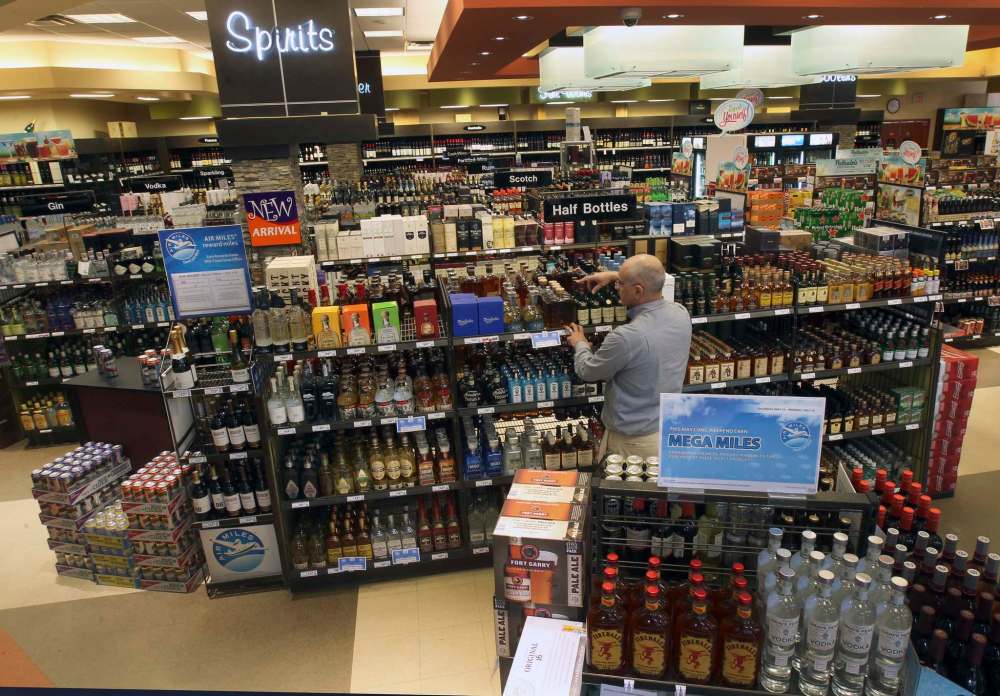Climate right for privatization talk
Advertisement
Read this article for free:
or
Already have an account? Log in here »
To continue reading, please subscribe:
Monthly Digital Subscription
$1 per week for 24 weeks*
- Enjoy unlimited reading on winnipegfreepress.com
- Read the E-Edition, our digital replica newspaper
- Access News Break, our award-winning app
- Play interactive puzzles
*Billed as $4.00 plus GST every four weeks. After 24 weeks, price increases to the regular rate of $19.00 plus GST every four weeks. Offer available to new and qualified returning subscribers only. Cancel any time.
Monthly Digital Subscription
$4.75/week*
- Enjoy unlimited reading on winnipegfreepress.com
- Read the E-Edition, our digital replica newspaper
- Access News Break, our award-winning app
- Play interactive puzzles
*Billed as $19 plus GST every four weeks. Cancel any time.
To continue reading, please subscribe:
Add Free Press access to your Brandon Sun subscription for only an additional
$1 for the first 4 weeks*
*Your next subscription payment will increase by $1.00 and you will be charged $16.99 plus GST for four weeks. After four weeks, your payment will increase to $23.99 plus GST every four weeks.
Read unlimited articles for free today:
or
Already have an account? Log in here »
Hey there, time traveller!
This article was published 23/09/2016 (3319 days ago), so information in it may no longer be current.
Brian Pallister was quite clear in December if his Conservatives won the provincial election they wouldn’t privatize liquor sales. As he put it, his government had other priorities to deal with first. These included getting the province’s fiscal house in order, and it’s a promise he’s been attempting to keep with considerable zeal. It’s become the new government’s raison d’être, and rightly so.
But if Mr. Pallister wanted to step back from his rejection of privatizing Manitoba liquor sales, now would be the prime time to set the wheels in motion. It would assist his government in its quest to reduce government spending, and it would certainly appeal to the Conservatives’ base.
University of Winnipeg political scientist Malcolm Bird’s study of privatization of liquor stores in Alberta points to a number of factors that allowed then-premier Ralph Klein in 1993 to make the move to privatization. Many of those factors exist right now in Manitoba politics.

Alberta in 1993 was dealing with mounting debt. So is Manitoba. In keeping with the government’s focus on cutting costs, privatization of Manitoba liquor stores could result in considerable savings. Reducing government staff means a reduction in the short term by slashing personnel costs such as wages and benefits. It also has a long-term benefit of the financial responsibility for public-sector benefits and other costs such as defined-benefit pensions. Yes, there is revenue to be made by the sale of alcohol, but this is offset by the costs of maintaining the organization. If the Tories are looking at a way to divest themselves of future liabilities, this may be one way to go.
But it’s more than just that. As Mr. Bird points out, when the Alberta Tories initiated privatization in the 1990s, it effectively served as a blast across the bow to other public-sector unions that the government was serious about slashing costs. Mr. Pallister responded defensively throughout the election campaign that he had no plans to lay off teachers (and other public-sector front-line workers) because of his family background. However, he has not ruled out getting rid of dead wood at the middle-management level. What better way to signal the seriousness of that commitment than starting with a workforce many consider highly overpaid — in essence retail workers at government wages. As well, this government is not going to be well-supported by organized labour, so alienating them will not hurt the Tories’ support.
In terms of potential opposition, both of Manitoba’s opposition parties are in disarray, with no leader and no attempts to find a leader until at least the new year. The Manitoba NDP will not name a replacement for interim Leader Flor Marcelino until October 2017. Meanwhile, the Liberals haven’t landed on a date yet, but nothing is expected to happen until next year.
Privatization fits well with the ideology of this present government. Full privatization allows the market to guide pricing and location of outlets, a principle Mr. Pallister and his cabinet ministers have embraced in other aspects of government policy.
When the announcement came earlier this week that the newly named board of Manitoba Liquor & Lotteries was cancelling the consolidation of its operations in one location downtown, the scuttlebutt that the government is heading toward privatization of liquor sales began in earnest. Strategically, now may be a good time for the board to examine the potential for such a move.





